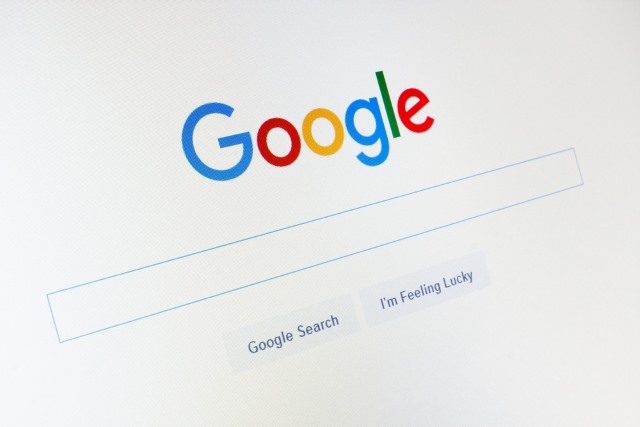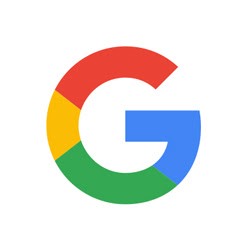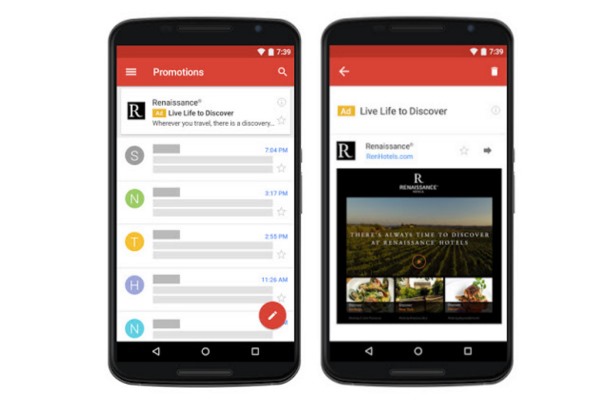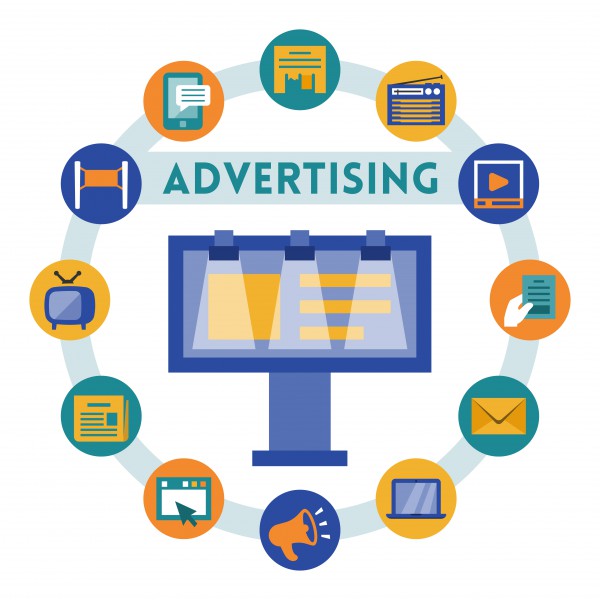
Google rebrands its advertising line-up -- bye bye to AdWords and DoubleClick, hello to Google Ads
Google has acknowledged that its array of ad products has caused "a lot of confusion", and after listening to feedback has decided to roll out a rebrand. On the face of it, this is just a name change that sees AdWords and DoubleClick laid to rest, but there are also new tools being introduced.
Let's get the name changes out of the way first. AdWords has been rebranded to Google Ads; DoubleClick Digital Marketing and Google Analytics 360 now come under the Google Marketing Platform umbrella; and DoubleClick Ad Exchange and DoubleClick for Publishers are now called Google Ad Manager. But there's more.

AdWords malvertising targets macOS users
Researchers at threat prevention company Cylance have discovered a malvertising campaign on Google AdWords for the search term "Google Chrome", where unsuspecting macOS users were being tricked into downloading a malicious installer.
The installer, identified as "OSX/InstallMiez" (or "OSX/InstallCore"), ultimately downloads a malicious file named "FLVPlayer.dmg". The malware hash changes on each download, making it difficult to detect and track.

Google slaps an AdWords ban on payday loans and other high interest finance services
In recent years Google has started to tighten up on the products that can be promoted through its services. After cracking down on porn, the latest victims of the ban hammer are payday loans and other high interest finance services.
Starting July 13, it will no longer be possible to advertise such products through AdWords. Ads for loans with repayment deadlines of under two months are now outlawed, as are ads for loans with high interest rates.

Google's Customer Match and Universal App Campaigns bring closely-targeted mobile ads
Google is making it easier for advertizers to very closely target mobile users, homing in on the 'moments that matter'. The company is launching two new ad products -- Customer Match and Universal App Campaigns -- in a bid to convert more views into sales.
The aim with Customer Match is to target people with ads based on what they are doing, where they are, and the device they are using. It ties in with searches, Gmail, and YouTube to enable businesses to create highly tailored ad campaigns. Universal App Campaigns helps advertisers gain greater reach across the Google network.

You're probably about to notice a lot more ads in Gmail
On the same day that Google unveiled its new logo, the company also slipped out some other news that didn't get quite as much attention. Considering the news means that Gmail users are likely to be inundated with more ads than ever before, it's hardly surprising that Google wasn't shouting from the rooftops, but that's what's happening.
Native Gmail ads are now rolling out to AdWords users, giving companies a new way to gain a presence in potential customers' inboxes. This is not spam. This is not a new way to start an email-based ad campaign. It's actual AdWord-triggered ads at the top of inboxes.

Google REALLY wants you to see ads -- Adwords automatically converts Flash to HTML5
Advertisements make the world go around. I understand they can sometimes be unpopular on the web, but using ad-blocking software is counter-productive, as it can harm the site that you are visiting. True, some ads can be intrusive and inappropriate (depending on the site), but they can be good too, as they educate you on new products. If there were no ads on TV, the radio or the Internet, how would you learn about new products on the market? Sometimes I don't even fast-forward on my Tivo, so I can learn about new products.
Today, Google announces that Adwords will be automatically converting Adobe Flash-based advertisements to HTML5. This will increase visibility of the ads, especially on mobile platforms where Flash is very rarely used nowadays.

Google settles AdWords overcharge spat
A class-action lawsuit served on Google by AdWords advertisers who were charged more than their Daily Budget plan should have allowed, will be awarded up to $20,000 under the terms of a settlement reached this week. Meanwhile, the lawyers who brought the suit were awarded up to $5 million, plus expenses, for their trouble.
The suit covered AdWords advertisers who signed on between June 1, 2005 and February 28, 2009, and who were charged more than their Daily Budget on any day during that period, sometimes by as much as 120%. Advertising resellers are not included in the class. Google files four motions for partial summary judgment in the matter, then chose the settlement route -- admitting no liability or guilt, but apparently deciding that a $20,000,000 settlement was less of a nuisance than continued litigation. (The $20 million was put into an escrow account at the end of March.) Much of the payout will be offered in the form of ad credits for marketers.
Microsoft's Answer to Google AdWords Enters Beta August 29
Customers of Microsoft's AdCenter are being invited to participate in the company's first foray in the field of context-sensitive, text-only advertising - the product that many say established Google's permanent presence in online services.
Displaying its typical flair for draining all the poetry out of the naming process, Microsoft Content Ads enters the beta process one week from tomorrow, with the promise of opening up formerly premium MSN ad inventory to low-cost clients.
American Airlines Sues Google Over AdWords
Upset that advertisements for its competitors are appearing in searches for its trademarks, American Airlines parent AMR has sued Google seeking unspecified damages.
AMR says that ads for competitors' services appear when searching for its trademarked names, such as its “Aadvantage” frequent flyer program. The company says the ads appear alongside ads placed by the company itself in the ‘Sponsored Links’ section.
Multi-Middleman 'Mpack' Attacks Use Google AdWords to Lure Victims
One of Russia's fastest growing markets, and quite possibly a contributor to stabilizing that country's fickle economy, is cut-rate, self-deploying Trojan horse packages.
As malware writers there have discovered, rather than baiting and waiting for victims to fall into their traps at random, so that they carry out DoS and identity theft attacks without knowing they're doing so, would-be victims worldwide will gladly pay for the privilege of knowingly carrying out those same attacks.
Google Adds Print Option to AdWords
Advertisers using Google AdWords are seeing a new option for reaching customers: print newspapers. The search company has been testing the print waters since late last year, and said in December it would enable online advertisers to purchase surplus inventory in hundreds of newspapers.
AdWords advertisers can choose a weekly amount they'd like to spend on the campaign, as well as the newspapers to target, which Google lists with circulation numbers. The concept of ad brokerage is nothing new to the industry. What is new is Google's spin on it, which is essentially pure automation and acceleration of the process, not unlike what eBay has done for barter. Marketing Pilgrim has screenshots of AdSense for Print.
Amazon Tests AdWords-Like Service
Amazon recently began testing a program similar to Google's AdWords that would allow a Web site owner to place sponsored links on their sites to generate additional revenue. The online retailer began testing the service in late January, however it has not announced any official launch date or revealed the third-party provider of the sponsored links, as the company is not hosting that portion of the service on its own.
As well as displaying sponsored links, the service would also intersperse links to Amazon products, which the company hopes would become a major source of traffic to its sites.
Ask Jeeves Takes On Google AdWords
Ask Jeeves on Monday announced "Sponsored Listings," a program that will work similar to Google AdWords where advertisers will bid for better ad placement on the search engine's pages. The new ad program will receive premier placement in search results, above Google's AdWords that the company will continue to display.
It is unclear how Google, a business partner of the company, will react to Ask's latest move. With advertising, the further up a link is on the page, the more likely it is that it will be clicked. Now underneath Ask's own ads, Google will bring in less money from the partnership.
Google Takes AdWords Beyond Clicks
Monday, Google is equipping advertisers with a new tool to target specific Web sites with AdWords advertisements and is testing a new cost-per-thousand impression (CPM) bidding model that matches what advertisers are willing to pay with the cost of advertising on a specific Web site.
A limited beta feature of Google AdWords allows participating advertisers to place text, static and animated image advertisements on content relevant Web sites of their own choosing rather than to a general audience on the open Web. Animated banner advertisements are an addition to AdWords that launched last year.
Google Releases AdWords API Beta
Google late Thursday released a beta of an API, otherwise known as an application program interface, for its successful AdWords program. The API will allow developers to better manage campaigns on their own, as well as further innovate the delivery of Google's text-based search ads.
"The AdWords API beta program is an open invitation to developers to explore new concepts (and then write great software) for managing Google AdWords advertising campaigns," Josh McFarland, Google AdWords Product Manager, and Nelson Minar, software engineer wrote, in the Google Blog.
